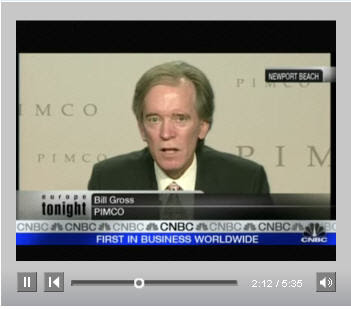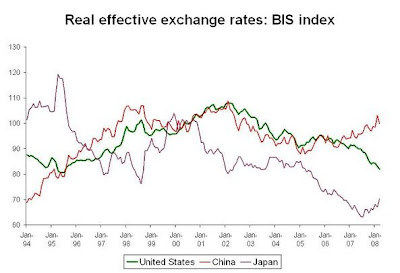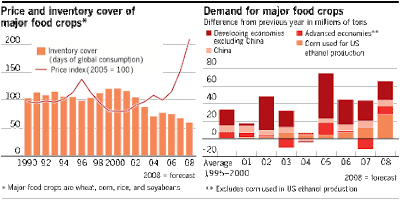China’s Real Effective Exchange Rate
Dutch Disease?
Are we gonna see another “Dutch Disease” (the boom and bust of oil-led business cycle) happening soon in the Gulf?
Consider the following graph, which shows the Middle East’s oil export revenues over time.* For the calculations, I assumed oil will average $120 a barrel in 2008. That is on the high side – as oil would have to average more than $120 a barrel over the remainder of the year to bring the annual average up to $120. On the other hand, oil keeps on rising …
* I calculated oil export revenues by multiplying the oil price (using the IMF’s data) by a country’s net oil exports (using the BP data set)
Looking at nominal dollars though can be a bit deceptive. Relative to world GDP, the Middle East’s surplus is actually a bit smaller this time around.
Real oil prices are back where they were in 79-80. But the world has become a bit less oil-intensive over time. A barrel of oil produces more output now than in the early 80s – or, alternatively, it takes a bit less oil to generate a dollar of output.
Inflation conundrum
Everybody talks about inflation, but market-based measures of inflation expectations have remained remarkably stable. We find this discrepancy between what investors talk about and what they seem to do puzzling. … One is that while inflation is currently a concern, most investors trust that central banks will ensure inflation stays in check over the longer term by taking appropriate action. Another is that market-based measures such as breakeven inflation rates may be distorted by crisis-induced buying of nominal bonds and thus do not reflect investors’ true inflation expectations.
Nobel laureates on "decoupling"
Nobel laureates in economics Gary Becker of the University of Chicago, Edmund Phelps of Columbia University, Myron Scholes of Stanford University, and Michael Spence, former dean of the Stanford University Business School, participate in a panel discussion at the Milken Institute Global Conference in Los Angeles about the theory of "decoupling" and outlook for the U.S. and global economies.
>







